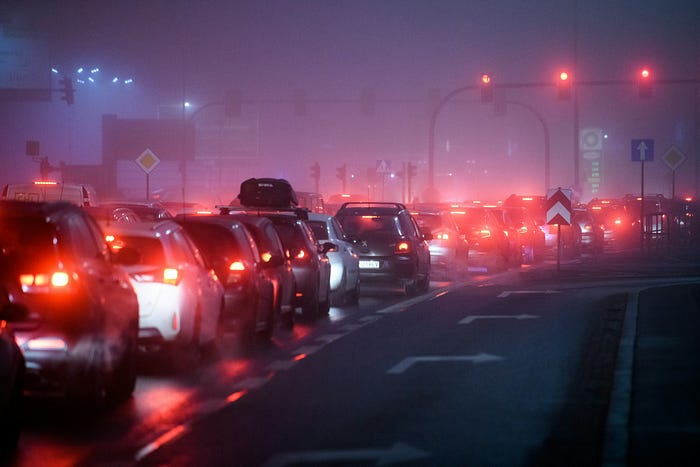Researchers at the University of California, Berkeley, who operate a network with dozens of sophisticated sensors in the San Francisco Bay Area, have found that between 2018 and 2023, pollution decreased annually by an average of 1.8%, and that this decrease is almost exclusively due to the increase in the use of EVs.
It's not a huge number, certainly not when compared to the total emissions of such a huge area, although it is estimated that to meet California's ambitious goals, a 40% reduction over 1990 levels by 2030, would require a fall of 3.7% per year, a little more than double, that many predict will not be attainable.
However, if the reduction obtained is almost entirely due to the use of EVs, there is room for hope: despite the fact that California in general and the San Francisco Bay Area in particular constitute, within the United States, the place with the highest adoption of EVs (in a country shamefully addicted to gas guzzlers) and with a high percentage of energy obtained from renewables, we are talking about a total of 1.1 million electric vehicles out of a total of more than twenty-eight million, less than 4% (and that, including plug-in hybrids, which serve no purpose in terms of emissions' reduction). If, as is the case in Norway, more than 90% of new vehicles purchased were to be electric and the percentage of energy coming from renewables were more than 99%, the potential for improvement would be extremely high.
What would the mass use of EVs in cities mean? Although they only cover 3% of the planet's surface, they produce around 70% of emissions, which gives an idea of the potential. What's more, those of us who live or work in a city know: you only have to look at the collar or the cuffs of a white shirt to know that if the equivalent of that accumulates in our lungs every day, that cannot be a good thing.
The results of the study, published in the scientific journal Environmental Science & Technology, show that EVs are a fundamental factor in achieving the decarbonization goals we need to avoid a climate emergency that increasingly generates more environmental catastrophes: uncontrolled droughts, extreme floods, uncontrollable forest fires, etc. much more frequent hurricanes and increasingly dangerous heat waves.
Transportation is not the most important factor in emissions, since it corresponds to the generation of energy, but it does give rise to a type of emissions that occur on a daily and recurring basis, and that also take place precisely where the majority of the population lives.
A reduction in emissions in cities would play a fundamental role not only in the well-being of citizens, but also in their life expectancy and in the consumption of resources by the health system. Many so-called modern diseases from heart disorders to strokes, respiratory problems and even, according to recent studies, numerous mental illnesses, are related to the changes in our environment produced by the climate emergency.
Let's us not forget: the climate emergency is a technological problem: two technologies, fossil fuels and the internal combustion engine, allowed human societies to achieve very high levels of productivity and well-being unheard of in human history. But the costs that the oil companies have been hiding for more than 50 years, are now evident, and we must act immediately.
Technology offers us the means to curb the climate emergency without necessarily losing quality of life. EVs are proof of this: superior technology to their internal combustion equivalents (greater energy efficiency, less maintenance and infinitely better driving performance) and cheaper in the medium to long-term if we take into account that they are powered by electricity, much cheaper than petrol or diesel.
Successive governments in Spain, where I live, has been dragging their feet; in fact that it is one of the countries in Europe with the lowest percentage of EVs: on the one hand, it's clear that the average Spaniard has no idea about finances, and on the other, carmakers have not taken the transition to EVs seriously. All this, in a country with abundant wind and sunshine to power renewables.
We have to stop all these stupid and baseless arguments about EVs and get our act together. Literally. The sooner, the better.
(En español, aquí)


